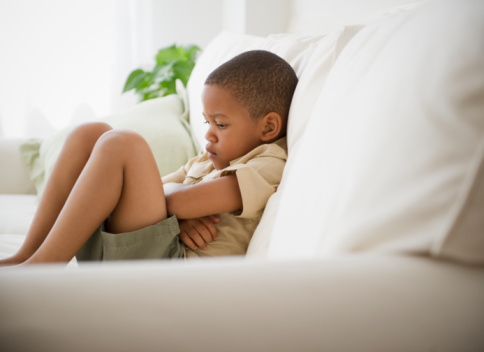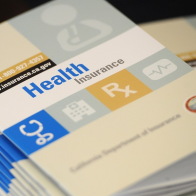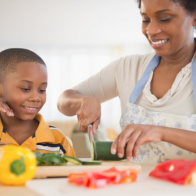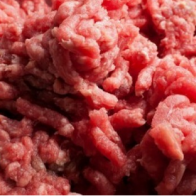
Disciplining your child may lead to some serious complications down the line. According to Canadian researchers, adults who remember being hit, slapped, or pushed as kids are more likely to grow up with personality disorders, depression, and anxiety.
Now I’m sure most parents won’t disagree that a three-year-old who is behaving horribly shouldn’t be reprimanded. I know many parents who wouldn’t hesitate to go upside a child’s head if they were acting out, especially in public. I have been scolded on many occasions as a child, both publicly and privately, as my mother did not believe in a “timeout.” (FRUGIVORE absolutely doesn’t condone any form of physical discipline of any kind from an adult to a child)
But when it comes to harsher punishments, such as kids being brutally beaten, researchers say that between two and seven percent of mental disorders are due to severe punishments in childhood.
Of the 35,000 participants surveyed across the country between 2004 and 2005, around six percent of children were punished “beyond spanking ‘sometimes,’ ‘fairly often’ or ‘very often’” according to the Chicago Tribune. “20 percent of people who remembered being physically punished had been depressed, and 43 percent had abused alcohol at some point. That compared to 16 percent of people who weren’t hit or slapped who had been depressed, and 30 percent who drank too much.”
I couldn’t help but think of the rapper DMX, who appeared on VH1’s Couple’s Therapy with his wife Tashera Simmons, suffering from what seemed to be an almost schizophrenic state, often jumping back and forth from a raging mad man one minute, to a crying child who felt deserted the next. In a group confessional he recounted a story of abuse from his childhood when he was beat excessively.
“I used to get a lot of beatings [from] my mother. Her favorite thing was a cord, an extension cord.” DMX recounted. “Well she braided three of them together and would wait until I go to sleep. Then she would climb on my back and just beat me. She used to beat me until she was tired. I think that’s why it’s hard for me to sleep sometimes.”
That form of abuse is something that stays with you for years.
Michele Knox, a psychiatrist at University of Toledo College of Medicine, told Reuters that physical punishment adds repeated and chronic stress throughout one’s life. She offers the “time out” option as an alternative, as well as rewarding good behavior. But I know very few moms who would solely rely on time outs as a method of disciplinary action.
What do you think?







I’m very torn about this report. I love my parents so much but they put their hands on me often and violently and I used to justify the abuse because I am successful in my career and I can’t say hold any ill-will against my family. But I struggled so much during my pre-teen years with acceptance, love, and self-esteem that I sought it out from every person outside of my parents because I was terrified of them. I always say that when I have children I’ll never hit them and I’m pretty sure I’ll stick to it. Thanks for sharing this news.
I am not surprised.
The cycle of abuse must stop somewhere. We normalized authoritative abuse long ago, arguably before slavery, and now it’s a common adage to say to parents crack the whip. I guess this why it so hard to get blacks mo ilized against the police and its abuse or our endless wars of aggression against smaller nations. Sad indeed. It’s all cyclical
@Anonymous:
1.Blacks have been mobilized against police brutality and the brutality within the neighborhoods. On one hand you are sleeping with the enemies and on the other you are calling the enemy to come help you out. It shouldn’t be that way, Black should be able call on those services they are taxed for and not feel like they maybe violated when they arrive. Police has often been the incestuous/rapist/ alcoholic Dad to the preadolescent girl/boy.
2.The Occupy Movement saw what happens to Blacks everyday with police interactions. Most of that was in front of large group with cameras.
3.Our cycle that we are reaping will be the police state and the corporate control of basic services. Some of the injustices you hear of in more indigenous areas. The money/income shift in the hands of the few and the military more and more being used to protect those individuals sets up a lord and serfdom empire.
Where can i get help for my 24year old son,i had him when i was 16 years old,o can see alot of things that r going on with my son.please help!!!
marlo, google mental health therapists in your area or look on the back of your health card and see if there’s an 800# you can call for mental health services. if that doesn’t work call 211 for help in your area. good luck to you.
@Marlo Talley:
I think you should look at getting him into counseling. Is there a Boys Club/ YMCA or and program that can provide access to free counseling for you? Perhaps that might be a good start. Also, sometimes hospitals have a Social Workers onsite who can refer you to the right place. Just some ideas to look into.
Good Luck.
I think the key is moderation. Spanking and beating are not the same thing. Children must be disciplined but it doesn’t always have to be physical. Things can too easily go overboard if the parent is trying to discipline their child when their upset about what the child did. Respond, don’t react.
@Tia: You’re are right. They are not the same thing. Most Black parents beat their kids rather than spank.
@Right as Rain: *You are right
2-7% That’s almost completely within a common statistical margin of error. Seems a little slanted. If the researchers are going to make a case they can’t use junk science to make the case. I am not condoning slapping and punching kids, but if you are going to make a case do so credibly.